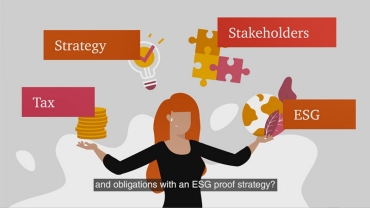
Update - Wage Tax Manual: most significant changes ET costs
18/11/22
Update 17 November 2022
There have been several discussions with the Dutch Tax Authorities on whether the costs of applying for a work permit or 30% ruling should be considered extraterritorial expenses (“ET costs”). The answer determines whether these costs can be reimbursed tax-free by definition or only as part of the 30% ruling.
In recent years the Dutch Tax Authorities have taken different positions on this and recently updated them again. It boils down to the following:
The costs for applying for or converting a work permit do not qualify as wages;
The costs for the application for the 30% ruling also do not qualify as wages.
These costs are now - in our opinion correctly - deemed to be intermediary (employer) costs and are therefore not wages. These positions can be found in the Wage Tax Manuel 2022 (‘handboek loonheffingen’) version October. We note that the costs of an application for an A1 certificate/Certificate of Coverage ('CoC') are still regarded as extraterritorial costs in the opinion of the Dutch Tax Authorities.
Original publication 24 November 2021
Employees who are temporarily seconded to the Netherlands are often reimbursed for costs associated with their employment outside their country of origin (extraterritorial costs or 'ET costs'). A targeted exemption applies to these ET costs: the costs can be reimbursed tax-free based on the actual costs. However, when the 30% ruling is applied, a fixed tax-free allowance is applicable and the actual ET costs can no longer be (additionally) compensated tax-free.

A number of changes have been made in the Wage Tax Manual (‘handboek loonheffingen’) regarding the extraterritorial costs. Firstly, the costs for the 30% ruling and the costs for an A1-statement / Certificate of Coverage (“CoC”) application are defined as extraterritorial costs. Secondly, the exemption with regard to applying for or converting a work permit has been removed in the Wage Tax Manual. Thirdly, the costs of preparing the income tax return are no longer allowed to be capped at EUR 1,000. Finally, the Dutch Tax Authorities emphasize that the costs of tax advice for employees are considered to be wages.
Application costs for the 30%-ruling are ET costs
For incoming employees, most employers make use of the 30% ruling. In addition, most employers apply for an A1-statement or CoC on behalf of incoming / outbound employees. In the Wage Tax Manual of October 2021, the Dutch Tax Authorities defined the application for the 30% ruling and the social security statement application as ET-costs. Consequently, the Dutch Tax Authorities took the position that the costs for these applications qualify as taxable wages.
However, in the new October edition of the Wage Tax Manual 2022 the Dutch Tax Authorities mention that the costs for applying for the 30% ruling do not constitute extraterritorial costs after all. Costs made for A1-statements or CoC do qualify as such.
Specific exemption work permit has been repealed
Under the old ‘benefits in kind and reimbursements’ scheme, the application costs or costs for converting a work permit could be reimbursed tax-free as a business expense. Under the ‘work-related costs’ scheme (WKR), the application costs or costs for converting a work permit were not exempted.
In our opinion, however, the costs for the work permit should be considered intermediary costs as the employer is required to obtain the permit. Indeed, the Dutch Tax Authorities have now also explicitly mentioned that the application costs or costs for converting a work permit do not constitute wages.
Costs of preparing an income tax return will be capped
When the employer pays for the costs with regard to the preparation and filing of the income tax return for an employee, the costs are deemed to be taxable wages. Are the costs for an incoming employee higher than when the employee was not deployed? Then these additional costs are considered to be ET costs. Up to December 2021 the Dutch Tax Authorities approve that a maximum amount of EUR 1,000 is assumed for these costs if no sufficiently specified invoice is available. As of 1 January 2022, however, the costs must always be based on the invoice value (including VAT) and if necessary a specification must be requested.
Costs of tax advice as taxable income
The Wage Tax Manual version October 2021 notes that the costs of tax advice for an employee, paid by the employer, are considered to be employment income. In this context, it is important to assess the consultancy costs on a case-by-case basis. In general, the costs for tax advice related to the tax and social security obligations of the employer and groups of employees do not qualify as wages of the employee.
What does this mean for your company?
With the changes in the Wage Tax Manual, the Dutch Tax Authorities have adopted new positions regarding certain ET costs. Indeed, based on the Wage Tax Manual of October 2022, the Dutch Tax Authorities have now taken a different position with regard to the costs for applying for a 30% ruling. These costs no longer qualify as ET costs.
Therefore, it would be advisable to have a clear overview of the costs that are incurred for an employee and how these costs could potentially qualify, taking into account the position of the employee. Finally, we would recommend checking how the reimbursed ET costs (e.g. the costs for the application of the 30% ruling) have been processed in your payroll before the end of the calendar year and take action if necessary.
Contact
Please feel free to reach out to your contact at PwC to determine the specific implications for your business.
Contact us



















